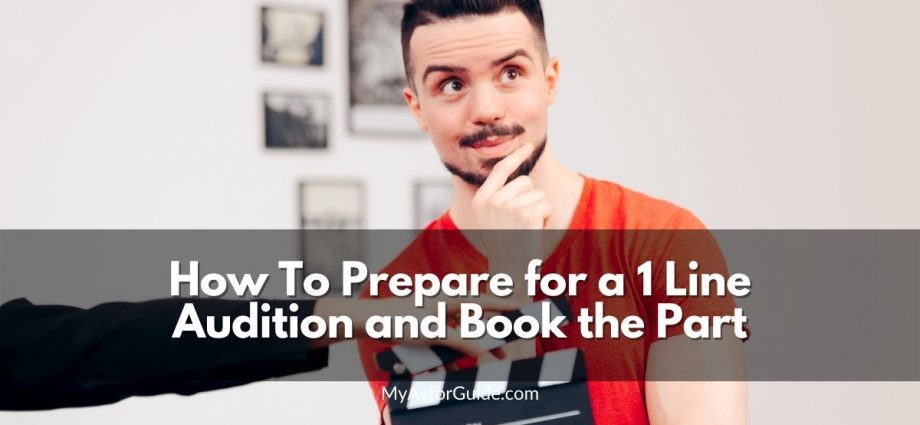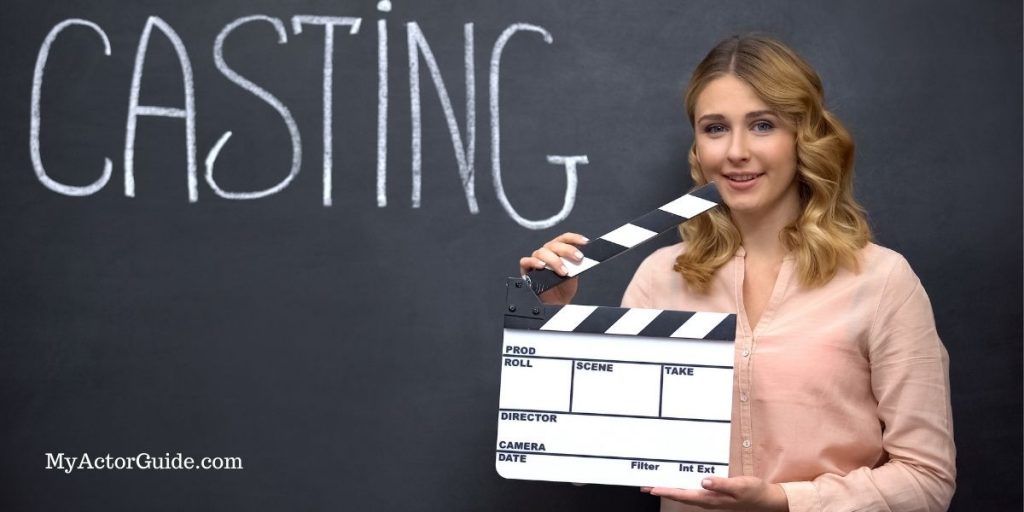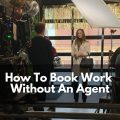This post may contain affiliate links, so I may receive a commission, at no cost to you, if you make a purchase through a link. Check out the disclosure for more info. And thank you for supporting free content!
One line auditions can be some of the trickiest you ever do. Yet for new actors, they are probably the auditions that you’re going to get most often in the beginning of your career.
They’re tricky because you obviously don’t need to spend a lot of time in prep for line memorization, but there are a few big traps that even experienced actors can fall into.
These 1 and 2 line (up to 5 line) roles are called Co-Star roles here in the states. They are the characters that most often just go by job titles or role description, rather than being given a formal name. A few examples are: Police Officer # 1, ER Nurse, Store Clerk or simply Waitress. Get the idea?
These roles can be challenging because you have to find the right balance between delivering a stellar performance without overdoing it and overwhelming a small part. But one or two line auditions, are also One Paycheck, One Resume / IMDB Credit and One More Step to landing bigger jobs. They are crazy important so they are worth mastering.
Here are 5 Key Tips to Prepare for a One or Two Line Audition and Book Bigger Jobs
1. It’s In the Script for A Reason
One or two lines may seem like nothing, but if that was really the case they would just be cut from the script. It’s crazy expensive to go through the process of casting that part, then doing an actor’s contract, wardrobe for the role, getting the actor on the call sheet and then actually shooting that one line – it’s literally thousands of dollars. And if they could cut it from the budget they would. That line is important. It moves the story forward. Without it there would be a gap in the story and the information the audience is getting about what’s going on.
2. Because of this…. It’s Not About You
These smaller roles which will probably make up 95% of the auditions that you go out for in the first few years of your career, are ALL about the story and not so much about the character, and definitely not the actor.
Example #1: Think of it this way, if it was a courtroom scene and a witness just answer 2 Yes or No questions and then says “I’ve been lying this whole time, I actually saw him do it.” , the whole story just took a turn. That is the purpose of these roles and these lines; they’re not about you.
Example #2: Another example is for the role of “Nurse” in an episode of Grey’s Anatomy and the character walks up to a doctor and says, “You’re patient in Room 102 is screaming for you.” Can you see how that’s not about the nurse and not about you? It’s all about the story and what’s happening next.
So……
3. Don’t Overdo It
As actors we are trained how to break down scenes and create backstories for characters but for way bigger parts. And it’s natural when you have only a few moments on camera to want to stand out…. Just don’t do it.
It will probably feel weird and you may want “to act”, but one and two line roles tend to be very natural, subtle, quiet and real. They truly just want a real person to say something like a real person would say to deliver information in that situation. It’s really that simple. This lends reality to what the main characters are doing and saying; the ones whose job it is to tell the full story and move the plot forward.
If you feel like you’re not doing anything, you probably got it right.
4. Have a Subtle Action for Two or Three Seconds Before Your Line.
Sometimes this is called a “Button”, because it neatly buttons up the scene. And this isn’t so much an action as a hint of an action. As in the examples from above, maybe the witness, plays with her necklace nervously or twists his wedding ring. For the nurse it could be checking a chart or giving the doctor a little wave from down the hall, depending on how wide the shot is and the context of the rest of the scene.
Note: Don’t mime complex activities…. Ever! But just have a hint of one.
5. Don’t Focus on Wardrobe and Never Do Costumes
A lot of these one line parts go to newer actors. Again, it’s easy to want to stand-out and impress, but don’t go above and beyond to dress the part. This can actually be distracting and sometimes look a little unprofessional.
For example, if the part is a cop, a collared button up shirt with a clean appearance is enough – uniform not needed. For a doctor or a nurse, , just having a blue crew neck or v-neck top that looks a little like scrubs is enough.
It’s a Numbers Game
There are tons and tons of one line parts being cast. Just about every single series shooting is going to have at least one of these roles per episode – that a lot of actors!
How Small Role Auditions Are Different
Small role auditions are different. You’re not creating a character with a full backstory in the traditional sense. For a small role, you simply need to be grounded, and let the words just come out of your mouth. Generally speaking, that is exactly what Casting Directors are looking for. They’re not looking for an interesting nurse with a backstory about how her sister is sick and she got into an argument with her boyfriend before work today. Whether she loves or hates her job, her boss or her life are all irrelevant to the scene. What matters is you simply delivering the line and trust that keeping it interesting or making it stand-out isn’t the objective – it’s just one of a hundred small conversations we each have everyday and they don’t have to be scintillating.
This doesn’t mean lose your energy or intentionally be boring, it just means for a moment or two be willing to be average. Focus on supporting the people around you and you’ll do just fine.
This is what books. And that’s what gets you back in the room to audition for bigger roles.
Until next time, keep reaching for the stars and following your dreams! xo Hunter
Was this tip on how to prepare for small role auditions helpful? What’s your biggest struggle when it comes to co-star auditions? Tell me about it in the comments below… I answer every one!
Like this post or love it? Tweet it. Post it. Pin it. Share it with actor friends! It’s a tough business and we could all use a little help!
* Please Note: I am not an agent, manager, or casting director. I do not procure work for actors. All information, workshops and coaching are for educational purposes only and are not a guarantee or promise of employment. Thank you for being here!







